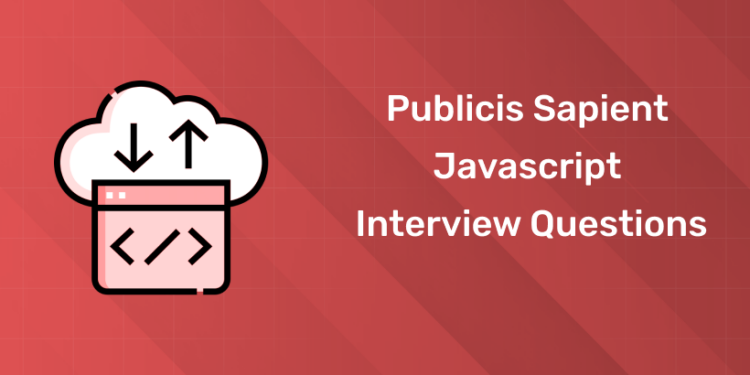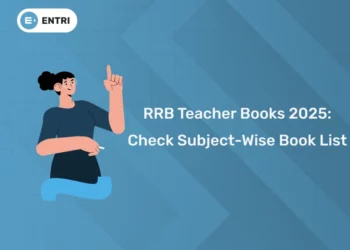Table of Contents
Preparing for a Publicis Sapient JavaScript interview can be a game-changer for your career. Known for its dynamic work culture and focus on digital transformation, Publicis Sapient offers exciting opportunities for developers passionate about cutting-edge technologies. To secure your spot, understanding the interview process, honing your JavaScript skills, and knowing what to expect are crucial steps. In this blog, we’ll explore why Publicis Sapient is a great place to work, share preparation tips, and cover some commonly asked JavaScript interview questions to help you succeed.
Learn Full Stack Development with expert mentors! Get Free Demo Here!
Publicis Sapient Javascript Interview: Introduction
Publicis Sapient is a leading global organization specializing in digital business transformation. With a focus on innovation and cutting-edge technologies, it has become a top destination for tech enthusiasts looking to work on impactful projects. If you’re aspiring to join Publicis Sapient as a JavaScript developer, you need to be well-prepared to demonstrate your technical prowess and problem-solving abilities.
The interview process at Publicis Sapient is known to be comprehensive, often testing a candidate’s understanding of JavaScript fundamentals, advanced concepts, and real-world application of frameworks like React and Angular. This blog is designed to help you prepare effectively, with insights into their interview process, key preparation tips, and a list of frequently asked JavaScript questions to help you stand out.
Why Join Publicis Sapient?
1: Which of the following is a JavaScript framework/library?
Publicis Sapient is more than just a workplace—it’s an environment where innovation thrives, and careers flourish. Here are some compelling reasons to consider joining this global leader in digital transformation:
1. Cutting-Edge Technology and Projects
Publicis Sapient is at the forefront of technology, leveraging advanced tools and frameworks like React, Angular, and Node.js. Developers get to work on innovative solutions that shape the digital future of industries like retail, healthcare, and finance.
2. Diverse Career Opportunities
With a global presence and a diverse client base, Publicis Sapient offers opportunities to work on a variety of challenging projects across domains. This diversity not only keeps work exciting but also broadens your professional experience.
3. Emphasis on Learning and Development
Publicis Sapient prioritizes employee growth by offering world-class training programs, mentorship, and certifications. The organization fosters a culture of continuous learning, ensuring employees stay ahead in their careers.
4. Collaborative and Inclusive Work Environment
The company values diversity and inclusion, creating a supportive work culture where every individual feels valued. Collaboration is at the core of their approach, allowing you to learn from talented professionals across the globe.
5. Focus on Work-Life Balance
Publicis Sapient understands the importance of maintaining a healthy work-life balance. Flexible work policies and employee well-being initiatives make it easier to thrive both personally and professionally.
6. Global Reach and Networking Opportunities
With offices in multiple countries and partnerships with industry-leading clients, Publicis Sapient provides unparalleled opportunities to work on global projects and expand your professional network.
Joining Publicis Sapient means being part of a team that doesn’t just adapt to change—it drives it. For JavaScript developers, this is a chance to contribute to impactful projects, sharpen your skills, and grow your career in a thriving, tech-driven environment.
Learn Full Stack Development with expert mentors! Get Free Demo Here!
Publicis Interview Preparation Tips for JavaScript
Preparing for a Publicis Sapient JavaScript interview requires a strategic approach to ensure you’re ready to tackle the technical and problem-solving aspects of the process. Here are key preparation tips to help you stand out:
1. Master JavaScript Fundamentals
- Be well-versed in core JavaScript concepts like:
- Variable scope (
var,let,const). - Closures, promises, and callbacks.
- Event loop and asynchronous programming (
async/await).
- Variable scope (
- Understand data types, type coercion, and the behavior of
thisin different contexts.
Tip: Use resources like MDN Web Docs and Eloquent JavaScript for in-depth knowledge.
2. Gain Expertise in Modern JavaScript (ES6+)
- Familiarize yourself with modern ES6+ features like:
- Arrow functions, destructuring, and template literals.
- Modules (
import/export) and default parameters. - Spread/rest operators and array/object methods (
map,filter,reduce).
Tip: Practice writing concise, clean code using these features.
3. Understand JavaScript Frameworks
- Publicis Sapient often works with frameworks like React, Angular, and Vue.js. Focus on:
- React: Lifecycle methods, hooks, state management (e.g., Redux).
- Angular: Components, services, directives, and dependency injection.
- Vue.js: Basics of Vue instances, directives, and Vuex.
Tip: Build small projects or review your previous work to solidify your understanding.
4. Brush Up on Data Structures and Algorithms
- Expect questions related to problem-solving, so practice algorithms like:
- Sorting and searching (e.g., quick sort, binary search).
- Array manipulations (e.g., two-pointer techniques).
- String operations (e.g., reversing, anagrams).
- Study time and space complexities for optimized solutions.
Tip: Practice coding challenges on platforms like LeetCode, HackerRank, and CodeWars.
5. Learn Design Patterns and Best Practices
- Understand common design patterns used in JavaScript, such as:
- Singleton, Factory, and Observer patterns.
- MVC and MVVM architecture for front-end development.
- Focus on writing clean, maintainable, and testable code.
Tip: Read about SOLID principles and apply them in your projects.
6. Understand Real-World Applications
- Be prepared to discuss how you’ve used JavaScript to solve problems in real-world projects. Highlight:
- Challenges faced and how you overcame them.
- Performance optimizations and debugging techniques you employed.
Tip: Prepare a concise explanation of two or three key projects you’ve worked on.
7. Practice Mock Interviews
- Simulate an interview environment to build confidence and improve communication.
- Focus on explaining your thought process clearly while solving problems.
Tip: Pair with a friend or use mock interview platforms like Pramp or Interviewing.io.
8. Soft Skills and Cultural Fit
- Publicis Sapient values collaboration and innovation, so be ready to showcase your:
- Problem-solving mindset.
- Teamwork and communication skills.
- Ability to adapt and learn quickly.
Tip: Prepare for behavioral questions, such as “Tell me about a time you solved a complex problem.”
9. Prepare Questions for the Interviewer
- Show your interest by asking thoughtful questions about:
- The company’s tech stack and projects.
- Opportunities for growth and innovation.
Tip: Research Publicis Sapient’s recent initiatives to make your questions more relevant.
Top Publicis JavaScript Interview Questions and Answers
Here’s a list of commonly asked JavaScript interview questions at Publicis Sapient, along with concise answers to help you prepare effectively:
Basic JavaScript Questions
1. What is the difference between var, let, and const?
var: Function-scoped, can be re-declared, and hoisted.let: Block-scoped, cannot be re-declared, and hoisted but in the Temporal Dead Zone.const: Block-scoped, cannot be re-assigned, and also hoisted.
2. Explain closures in JavaScript.
- A closure is a function that retains access to its lexical scope, even when executed outside of its defining scope.
function outer() {
let count = 0;
return function inner() {
count++;
return count;
};
}
const counter = outer();
console.log(counter()); // 1
console.log(counter()); // 2
3. What are the different data types in JavaScript?
- Primitive: String, Number, Boolean, Null, Undefined, Symbol, BigInt.
- Non-Primitive: Objects, Arrays, Functions.
4. What is the difference between == and ===?
==checks for equality after type coercion.===checks for equality without type coercion (strict equality).
5. Explain the concept of hoisting in JavaScript.
- Hoisting is JavaScript’s default behavior of moving declarations (variables and functions) to the top of their scope before execution.
Intermediate JavaScript Questions
6. What is the difference between synchronous and asynchronous programming?
- Synchronous: Code is executed line by line, blocking further execution until the current task completes.
- Asynchronous: Allows non-blocking execution using techniques like callbacks, promises, or
async/await.
Publicis Sapient Javascript Interview: Conclusion
Acing a Publicis Sapient JavaScript interview requires a thorough understanding of JavaScript fundamentals, hands-on experience with modern frameworks, and strong problem-solving skills. By preparing with the questions and tips shared in this guide, you’ll be well on your way to showcasing your expertise and confidence during the interview process. Publicis Sapient offers a dynamic and rewarding work environment, and with the right preparation, you can secure your place on their talented team. Good luck with your interview journey!
Frequently Asked Questions
What topics should I focus on for a Publicis Sapient JavaScript interview?
Focus on JavaScript fundamentals, ES6+ features, asynchronous programming, JavaScript frameworks (React, Angular, or Vue.js), and problem-solving with data structures and algorithms. Additionally, understanding real-world applications and design patterns will give you an edge.
How can I prepare effectively for JavaScript coding challenges?
Practice on platforms like LeetCode, HackerRank, or CodeWars. Focus on problems involving arrays, strings, sorting, recursion, and optimization techniques. Simulating timed challenges can help improve your speed and accuracy.
Does Publicis Sapient require knowledge of specific JavaScript frameworks?
Yes, Publicis Sapient often works with frameworks like React, Angular, and Vue.js. Having hands-on experience with at least one of these frameworks is highly beneficial.
What are some common behavioral questions asked during the interview?
Expect questions like:
- “Can you share a challenging project you worked on and how you resolved the issues?”
- “How do you collaborate with a team to solve complex problems?”
Prepare examples that demonstrate your problem-solving skills, teamwork, and adaptability.
Are there any resources to help prepare for a Publicis Sapient JavaScript interview?
Yes, some excellent resources include:
- Books: Eloquent JavaScript, You Don’t Know JS series.
- Websites: MDN Web Docs, freeCodeCamp, and W3Schools.
- Practice Platforms: LeetCode, HackerRank, and InterviewBit.
How important is understanding design patterns for the interview?
Understanding design patterns like Singleton, Factory, and Observer is essential. These patterns showcase your ability to write scalable, maintainable, and efficient code, which is a key focus for Publicis Sapient.
What should I highlight in my projects during the interview?
Emphasize:
- Challenges faced and how you overcame them.
- Technologies used and why you chose them.
- Performance improvements or optimizations you implemented.
- Team collaboration and contributions to the project.
How can I handle unexpected questions during the interview?
Stay calm and take a moment to think. Break the question into smaller parts and discuss your thought process. Even if you’re unsure, showing a logical approach can leave a positive impression.











